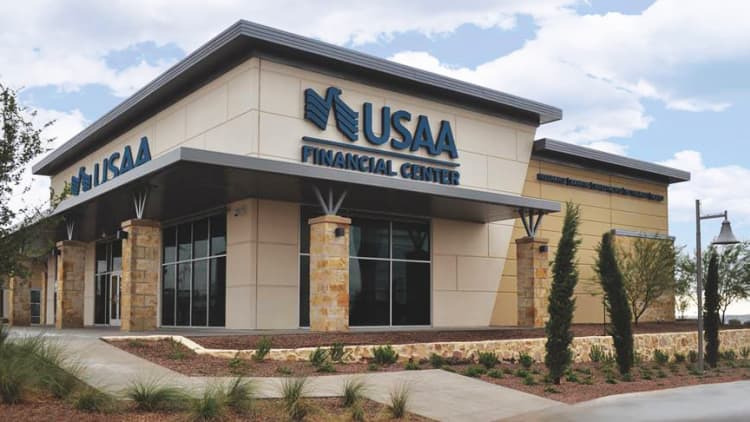
USAA CEO Wayne Peacock told CNBC on Monday that the company has recently noticed increases in car crashes, even with coronavirus-related restrictions on businesses in place.
"The last couple of weeks we've seen a slight uptick in those rates, certainly not because stores are reopening," Peacock said on "Squawk on the Street." "I do think there is either a spring fever or a cabin fever in the air. And we're noticing if you just anecdotally drive around, there are more cars on the road."
Peacock said USAA had observed, on average, about a 40% to 50% reduction in accident claims in recent weeks as stay-at-home orders from governments went into effect around mid-March and work-from-home policies were implemented.
The number of miles driven nationwide was down 44% between April 25 and May 1, compared with a weekly average of February data, according to figures from LexisNexis Risk Solutions.
As the steep declines in driving took place, creating by extension fewer auto insurance claims, USAA and many other auto insurers began to offer credits or refunds on premiums to customers.
San Antonio-based USAA, which serves military veterans and their families, recently announced a third 20% credit on monthly premiums to auto insurance customers.
Peacock said USAA has really noticed the uptick in accident rates in the last two weeks, and an increasing number of states are now taking steps to ease up on restrictions that were in place to help slow the spread of Covid-19.
"It will be very interesting over the next few weeks as states reopen and relax those orders what the driving patterns might be and how quickly we do or don't get back to normal," he said.
Peacock added that USAA is looking closely at how macro trends around transportation may be affected by the Covid-19 crisis. He specifically cited people potentially moving from cities into the suburbs, as well as rates of personal car use compared with ride-hailing services or public transit.
"All I think very interesting questions, with a very wide range of outcomes associated with it. We're studying all those and scenario planning for a future through and then post-pandemic," he said.


